Protect Your Car Wiring From Rodents
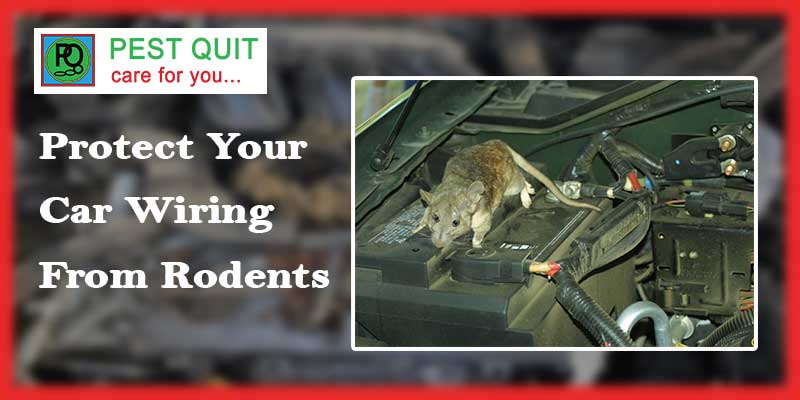
Issue: Rodents Damaging Car Wiring
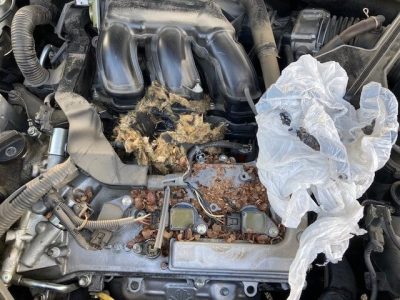
Understanding the Threat: Rodents and Car Wiring
1. Why Rodents Chew Car Wiring?
-
Rodent Biology and Chewing Habits
Rodents, small mammals known for their sharp incisors, are wired for survival. Rodent biology revolves around these ever-growing teeth that necessitate constant gnawing. This innate behavior isn’t just about keeping their dental hygiene intact, it’s a means to wear down their teeth and prevent overgrowth that could hinder eating. Chewing habits are also linked to exploration and marking territories. These critters, like rats and mice, explore by nibbling on various materials, gauging texture, and tasting scent traces. Their adaptable teeth allow them to chew through a variety of substances, including wood, plastic, and even wires. -
Common Myths About Rodent Behavior Towards Car Wires
One of the most pervasive misconceptions about rodents is their supposed attraction to car wires. Contrary to popular belief, rodents don’t purposefully target vehicle wiring out of malice or instinct. Instead, they might inadvertently gnaw on wires as part of their natural chewing behavior. The wires can resemble the texture and taste of other materials rodents typically nibble on. Rodent behavior around car wires often occurs when seeking shelter, warmth, or nesting spots rather than a deliberate mission to damage vehicles. Understanding this can help dispel the myth that these creatures maliciously target car wiring systems.
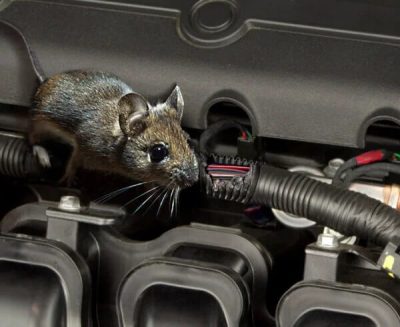
2. Types of Rodents that Damage Car Wiring
Impact of Rodent Damage on Car Wiring
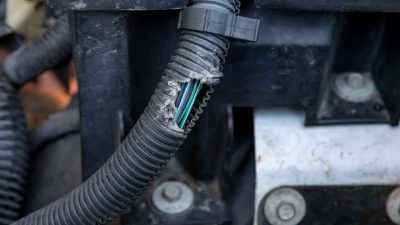
1. Extent of Car Damage done by rodents
-
How rodents cause damage and the severity of potential issues?
Rodents like mice and rats often seek refuge in cars, gnawing through wiring and nesting in snug spots. Their chewing can trigger electrical malfunctions, brake failures, or engine issues, posing serious safety risks. Damage extent varies, from minor nuisances to costly repairs demanding immediate attention. -
Challenges faced by mechanics in identifying and repairing the damage
Mechanics confront challenges in detecting and fixing rodent-induced damage. Identifying chewed wires or nests demands meticulous inspection, frequently hidden within the car’s intricate components. Pinpointing issues can be time-consuming, leading to delays in repairs. Moreover, rodents may revisit, requiring preventive measures alongside repairs for a lasting solution.
2. Potential Risks Beyond Wiring Damage
-
Fire hazards due to nesting materials
While car wiring damage caused by rodents can be an annoyance, it extends beyond inconvenience. Rodents, seeking shelter, chew on wires, potentially leading to electrical malfunctions and shorts. The peril escalates as they nest, storing flammable materials, elevating the fire hazard significantly. Unseen dangers from rodent waste in the car engine compartment
The overlooked peril lies not only in the chewed wires but also in the rodent waste left behind. Their feces and urine in the engine compartment pose health risks due to bacteria, causing respiratory issues or diseases. Regular checks and cleaning routines are vital to mitigate these unseen dangers.
Preventive Measures to Protect Car Wiring
1. How to Stop Rodents from Chewing Car Wires?
Strategies for preventing rodents from accessing the car engine
Rodents, such as mice and rats, often seek refuge in car engine compartments, causing damage by chewing wires and creating nests. To prevent this, begin by inspecting your vehicle regularly. Seal any openings with rodent-proof materials like steel wool or metal mesh. Employ deterrents like peppermint oil or ultrasonic devices to ward off these pests. Regularly clean your car to remove food debris, making it less attractive to rodents.
Tips for more frequent car use and parking practices
Frequent car use can deter rodents as the engine warmth discourages nesting. Park your vehicle in well-lit areas and avoid parking near bushes or overgrown vegetation, common hiding spots for rodents. Implement rodent deterrents like electronic repellents or natural deterrents such as mothballs or dryer sheets near parked cars.
Additionally, consider elevating your car on jack stands when parked for extended periods to make access more difficult for rodents. Regularly inspect your vehicle for signs of rodent activity, like chewed wires, and take immediate action if noticed.
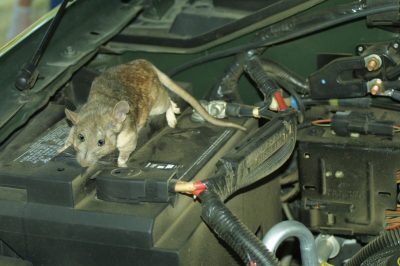
2. Identifying Entry Points and Sealing Them
Maintaining and Safeguarding Car Wiring
1. Regular Inspection and Maintenance
-
Importance of routine checks and visual inspection
Maintaining a routine check on your vehicle is crucial to catch rodent damage early. Rats seek shelter in cars and gnaw on wires, causing serious harm. Regular visual inspections under the hood and around the car can prevent costly repairs. Vigilance is key to identifying and addressing rodent-induced damage promptly. -
Professional advice on maintenance practices
Seeking professional advice on maintenance practices is essential for deterring rodents from damaging your car. Simple steps like using rodent repellents, securing your parking area, and employing preventive measures can safeguard your vehicle. Expert guidance emphasizes the significance of proactive care to avoid rodent-related car damage.
Rodent Damage - Insurance and Warranties
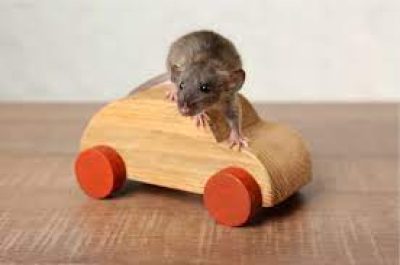
1. Does Insurance Cover Rodent Damage?
Car insurance coverage scenarios
Rodents causing damage to vehicles is a distressing ordeal for many car owners. Sadly, comprehensive car insurance typically covers this damage. Yet, specific policies might differ, requiring scrutiny. Chewed wiring, nests, or interior harm may be covered. Always verify policy clauses for such unexpected incidents.
Recommendations for checking auto insurance policies
Inspecting auto insurance policies regarding rodent-induced damage is crucial. Policyholders should carefully review comprehensive coverage.
Evaluate specific inclusions for rodent-involved harm like gnawed wires or nesting-related issues. Discussing with insurers about added protection for such incidents could prevent financial strain post-occurrence. Regular policy reviews help maintain adequate coverage.
2. Understanding Car Warranties and Rodent Damage
Conclusion
Protecting your home from pests like rodents involves several essential preventive measures. Begin by sealing any cracks or openings in your home’s exterior to block potential entry points for rodents. Maintain cleanliness, regularly disposing of trash and keeping food stored in airtight containers.
Regular inspection of the surroundings for signs of infestation is crucial. Consider using traps or professional pest control services if needed. Implementing these practices will significantly reduce the risk of rodent intrusion and keep your living space safe and comfortable.
Rodents can cause substantial damage to property and pose health risks. Take proactive steps to protect your home by securing entrances, eliminating food sources, and maintaining a clean environment.
Being proactive in addressing potential issues helps prevent costly damage and health concerns. Don’t wait for signs of infestation; instead, take preventive action to safeguard your home and family from the dangers rodents may bring. Your proactive efforts will create a safer and more secure living space, ensuring peace of mind.
Professional pest control is the only choice for serious pest problems. Experts at Pest Quit will help you determine the best plan of action for safely eliminating the pests.
Looking for Effective Rodent Control Services in your city?
Then you are in the right place.
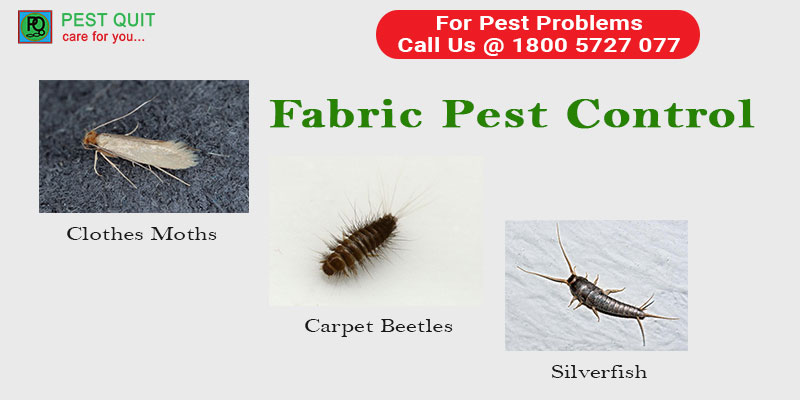
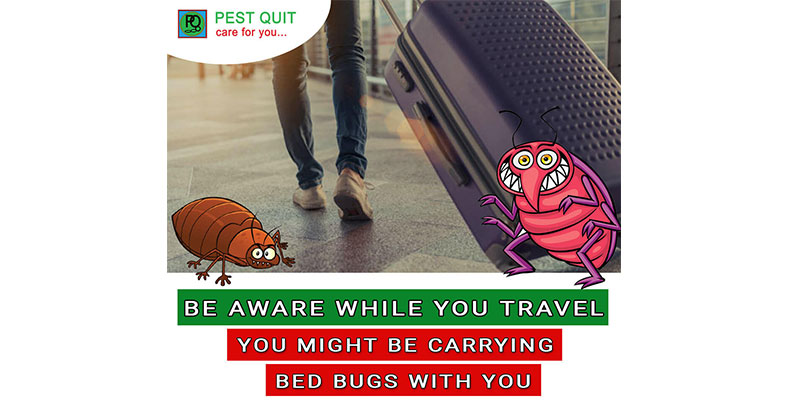
How do Bed Bugs Spread?
At one-time Bed bugs were thought to be gone, expired from the earth. But this…
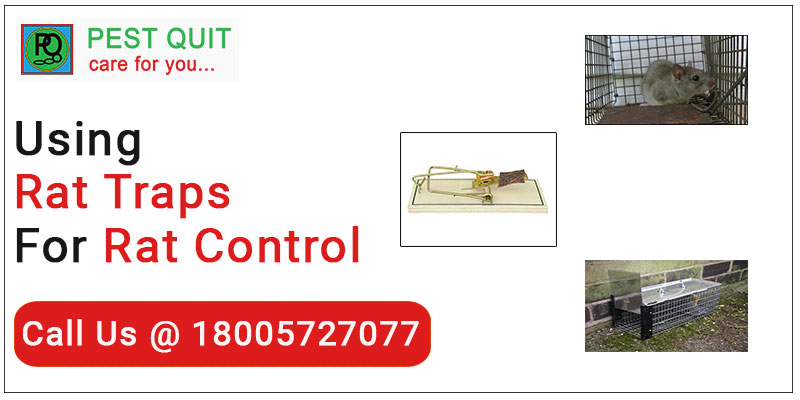
Rat Pest Control In India
The Best Service Provider For Rat Pest Control In India We Pest Quit are a…

